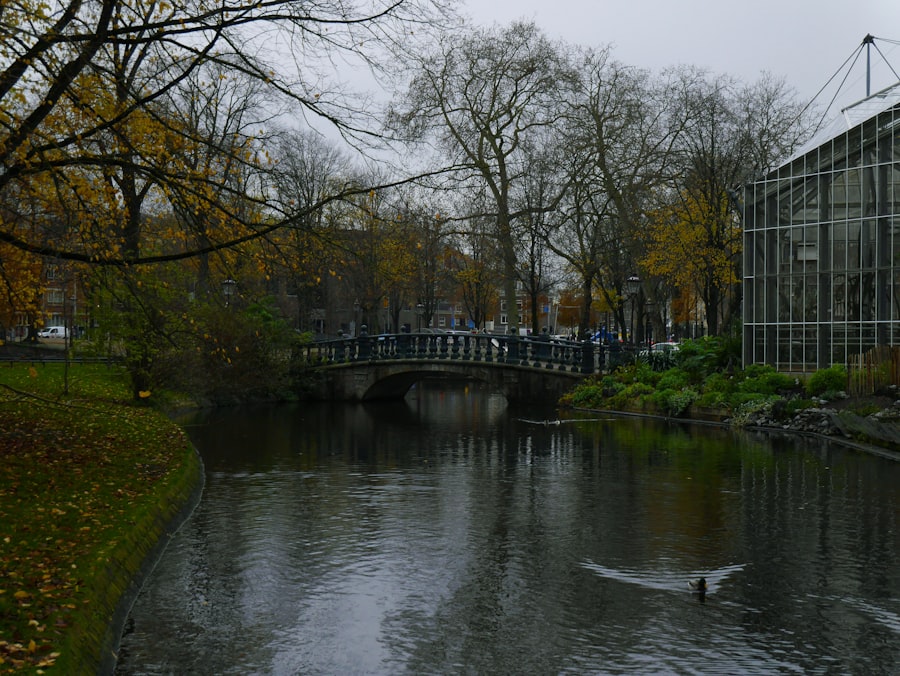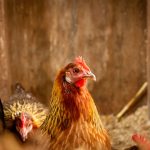Chickens are highly susceptible to heat stress due to their lack of sweat glands and reliance on panting for temperature regulation. When exposed to high temperatures, chickens can quickly become overheated, leading to various negative health effects. Heat stress can cause decreased egg production, poor egg quality, reduced feed intake, and in severe cases, death.
It also weakens the chickens’ immune systems, making them more vulnerable to diseases and infections. Heat-stressed chickens may exhibit signs such as panting, wing spreading, and lethargy. In extreme cases, heat stress can progress to heat stroke and mortality.
Poultry farmers must be able to recognize these signs and take immediate action to provide relief. Understanding the effects of heat on chickens is crucial for implementing effective strategies to mitigate its impact and ensure the well-being of the flock. To prevent heat stress, poultry farmers should implement proactive measures such as providing adequate ventilation, shade, and cool water.
They may also adjust feeding schedules and diet composition to reduce heat generation from digestion. Monitoring environmental conditions and chicken behavior is essential for early detection and prevention of heat-related issues in poultry operations.
Table of Contents
- 1 Providing Adequate Shade and Shelter
- 2 Ensuring Proper Ventilation
- 3 Offering Cool and Refreshing Water
- 4 Creating Cooling Stations and Dust Baths
- 5 Adjusting Feeding Schedule and Diet
- 6 Monitoring and Managing Heat Stress
- 7 FAQs
- 7.1 What are the signs of heat stress in chickens?
- 7.2 How can I keep my chickens cool in extremely hot weather?
- 7.3 What are some ways to provide shade for chickens?
- 7.4 How can I improve ventilation in the chicken coop during hot weather?
- 7.5 What should I do if I suspect my chickens are suffering from heat stress?
Key Takeaways
- Heat stress can have negative effects on chickens, including decreased egg production, poor growth, and even death.
- Providing adequate shade and shelter is crucial to protect chickens from the harmful effects of heat.
- Proper ventilation in chicken coops is essential to maintain a comfortable and healthy environment for the birds.
- Offering cool and refreshing water is important to help chickens stay hydrated and regulate their body temperature.
- Creating cooling stations and dust baths can help chickens cool down and reduce heat stress.
Providing Adequate Shade and Shelter
Creating a Comfortable Environment
One of the most important measures for preventing heat stress in chickens is to provide adequate shade and shelter. This can be achieved by ensuring that the chicken coop is well-ventilated and shaded from direct sunlight during the hottest parts of the day. Natural shade from trees or artificial shade structures can also be used to provide relief from the sun’s rays.
Ensuring Ample Space and Ventilation
Additionally, it is important to provide ample space for chickens to move around and find their own shade within the coop or run. Adequate shade and shelter are essential for protecting chickens from the harmful effects of excessive heat. In addition to providing shade, it is important to ensure that the chicken coop is well-ventilated to allow for air circulation and cooling.
Proper Ventilation for Heat Prevention
This can be achieved by installing windows, vents, or fans to promote airflow within the coop. Proper ventilation is crucial for preventing heat buildup and maintaining a comfortable environment for the chickens.
Reducing the Risk of Heat Stress
By providing adequate shade and shelter, poultry farmers can help their chickens stay cool and comfortable during hot weather, reducing the risk of heat stress and its negative effects on their health and productivity.
Ensuring Proper Ventilation

Proper ventilation is essential for maintaining a comfortable environment for chickens and preventing heat stress. Inadequate ventilation can lead to heat buildup within the chicken coop, making it difficult for chickens to regulate their body temperature. This can result in increased panting, decreased feed intake, and overall discomfort for the flock.
To ensure proper ventilation, poultry farmers should consider installing windows, vents, or fans to promote airflow within the coop. This will help to prevent heat buildup and create a more comfortable environment for the chickens. In addition to promoting airflow within the coop, it is important to consider the placement of the coop in relation to prevailing winds.
By positioning the coop in a way that allows for natural airflow, poultry farmers can further enhance ventilation and cooling for their chickens. Proper ventilation is crucial for preventing heat stress and maintaining the health and well-being of the flock. By taking proactive measures to ensure proper ventilation, poultry farmers can help their chickens stay cool and comfortable during hot weather, reducing the risk of heat stress and its negative effects.
Offering Cool and Refreshing Water
During hot weather, it is crucial to provide chickens with cool and refreshing water to help them stay hydrated and regulate their body temperature. Chickens can quickly become dehydrated in high temperatures, leading to increased susceptibility to heat stress and other health issues. Poultry farmers should ensure that water is readily available to the flock at all times, and that it is kept cool to provide relief from the heat.
This can be achieved by using shaded water containers or adding ice to the water to lower its temperature. Offering cool and refreshing water is essential for helping chickens stay hydrated and healthy during hot weather. In addition to providing cool water, it is important to monitor water consumption and refill water containers regularly to ensure that chickens have an ample supply.
Poultry farmers should also consider using multiple water sources within the coop or run to prevent overcrowding and ensure that all chickens have access to water. By offering cool and refreshing water, poultry farmers can help their chickens stay hydrated and comfortable during hot weather, reducing the risk of heat stress and its negative effects on their health and productivity.
Creating Cooling Stations and Dust Baths
Creating cooling stations within the chicken coop or run can provide relief from the heat and help chickens stay cool and comfortable. This can be achieved by placing shallow containers of water or wet towels in shaded areas for chickens to stand or lay in. Additionally, misting systems or sprinklers can be used to create a cooling effect within the coop or run.
Creating cooling stations can help chickens regulate their body temperature and reduce the risk of heat stress during hot weather. In addition to creating cooling stations, providing access to dust baths can also help chickens stay cool and comfortable. Dust bathing is a natural behavior for chickens, and it helps them regulate their body temperature and keep their feathers clean.
Poultry farmers should provide a designated area within the coop or run for chickens to dust bathe, using fine sand or dusting material such as diatomaceous earth. By creating cooling stations and dust baths, poultry farmers can help their chickens stay cool and comfortable during hot weather, reducing the risk of heat stress and its negative effects on their health and productivity.
Adjusting Feeding Schedule and Diet

Feeding During Cooler Parts of the Day
Poultry farmers should consider feeding their chickens during the cooler parts of the day, such as early morning or late evening, to reduce the risk of heat buildup during digestion. This simple change can make a big difference in the chickens’ comfort and health.
Smaller, More Frequent Meals
In addition to adjusting the feeding schedule, offering smaller, more frequent meals can encourage feed intake without causing discomfort in hot temperatures. This approach helps maintain the chickens’ energy levels and overall health.
A Balanced Diet with Essential Nutrients and Electrolytes
A well-balanced diet is essential for chickens to cope with heat stress. Poultry farmers should provide a diet that includes essential nutrients and electrolytes to help chickens stay healthy and productive. This may include offering supplemental feed or treats that are high in water content, such as fruits or vegetables. Additionally, providing access to grit or oyster shell can help chickens maintain proper digestion and nutrient absorption during hot weather.
Monitoring and Managing Heat Stress
Monitoring the behavior and condition of chickens is essential for identifying signs of heat stress and taking proactive measures to manage its impact. Poultry farmers should regularly observe their flock for signs of distress such as panting, wing spreading, or lethargy, especially during hot weather. Additionally, it is important to monitor egg production, feed intake, and overall activity levels as indicators of heat stress in chickens.
By staying vigilant and proactive in monitoring their flock, poultry farmers can identify signs of heat stress early on and take immediate action to provide relief. In addition to monitoring for signs of heat stress, it is important for poultry farmers to have a plan in place for managing its impact on their flock. This may include implementing cooling strategies such as providing shade, cool water, and dust baths, as well as adjusting feeding schedules and diet as needed.
It is also important to be prepared to seek veterinary care if necessary for chickens experiencing severe heat stress or related health issues. By monitoring and managing heat stress effectively, poultry farmers can help their chickens stay healthy and productive during hot weather, reducing the risk of its negative effects on their well-being. In conclusion, understanding the effects of heat on chickens is crucial for implementing effective strategies to prevent heat stress and ensure the well-being of the flock.
Providing adequate shade and shelter, ensuring proper ventilation, offering cool and refreshing water, creating cooling stations and dust baths, adjusting feeding schedules and diet, as well as monitoring and managing heat stress are all essential measures for helping chickens cope with hot weather conditions. By taking proactive steps to mitigate the impact of heat stress on their flock, poultry farmers can help their chickens stay healthy, comfortable, and productive year-round.
If you’re looking for more tips on keeping your chickens comfortable in hot weather, you might want to check out this article on chicken coop interior ideas. It offers some great suggestions for creating a cool and comfortable environment for your feathered friends during the sweltering summer months.
FAQs
What are the signs of heat stress in chickens?
Signs of heat stress in chickens include panting, holding their wings away from their bodies, decreased egg production, lethargy, and in severe cases, collapse or death.
How can I keep my chickens cool in extremely hot weather?
You can keep your chickens cool in hot weather by providing plenty of shade, ensuring good ventilation in the coop, offering cool water for drinking, and providing frozen treats such as fruits and vegetables.
What are some ways to provide shade for chickens?
You can provide shade for chickens by using tarps or shade cloths to cover their coop and run, planting trees or shrubs to create natural shade, or using portable shade structures that can be moved as needed.
How can I improve ventilation in the chicken coop during hot weather?
You can improve ventilation in the chicken coop by installing windows or vents to allow for cross ventilation, using fans to circulate air, and keeping the coop clean to prevent ammonia buildup, which can worsen heat stress.
What should I do if I suspect my chickens are suffering from heat stress?
If you suspect your chickens are suffering from heat stress, move them to a cooler area with plenty of shade and provide cool water for drinking. You can also use misters or sprinklers to help lower the temperature in their environment. If the symptoms persist, seek veterinary care.
Meet Walter, the feathered-friend fanatic of Florida! Nestled in the sunshine state, Walter struts through life with his feathered companions, clucking his way to happiness. With a coop that’s fancier than a five-star hotel, he’s the Don Juan of the chicken world. When he’s not teaching his hens to do the cha-cha, you’ll find him in a heated debate with his prized rooster, Sir Clucks-a-Lot. Walter’s poultry passion is no yolk; he’s the sunny-side-up guy you never knew you needed in your flock of friends!







